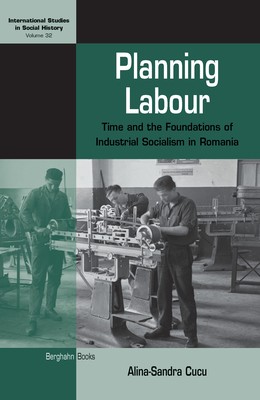
- We will send in 10–14 business days.
- Author: Alina-Sandra Cucu
- Publisher: Berghahn Books
- ISBN-10: 1789201853
- ISBN-13: 9781789201857
- Format: 15.2 x 22.9 x 1.6 cm, hardcover
- Language: English
- SAVE -10% with code: EXTRA
Reviews
Description
Impoverished, indebted, and underdeveloped at the close of World War II, Romania underwent dramatic changes as part of its transition to a centrally planned economy. As with the Soviet experience, it pursued a policy of "primitive socialist accumulation" whereby the state appropriated agricultural surplus and restricted workers' consumption in support of industrial growth. Focusing on the daily operations of planning in the ethnically mixed city of Cluj from 1945 to 1955, this book argues that socialist accumulation was deeply contradictory: it not only inherited some of the classical tensions of capital accumulation, but also generated its own, which derived from the multivocal nature of the state socialist worker as a creator of value, as living labour, and as a subject of emancipatory politics.
EXTRA 10 % discount with code: EXTRA
The promotion ends in 19d.18:40:58
The discount code is valid when purchasing from 10 €. Discounts do not stack.
- Author: Alina-Sandra Cucu
- Publisher: Berghahn Books
- ISBN-10: 1789201853
- ISBN-13: 9781789201857
- Format: 15.2 x 22.9 x 1.6 cm, hardcover
- Language: English English
Impoverished, indebted, and underdeveloped at the close of World War II, Romania underwent dramatic changes as part of its transition to a centrally planned economy. As with the Soviet experience, it pursued a policy of "primitive socialist accumulation" whereby the state appropriated agricultural surplus and restricted workers' consumption in support of industrial growth. Focusing on the daily operations of planning in the ethnically mixed city of Cluj from 1945 to 1955, this book argues that socialist accumulation was deeply contradictory: it not only inherited some of the classical tensions of capital accumulation, but also generated its own, which derived from the multivocal nature of the state socialist worker as a creator of value, as living labour, and as a subject of emancipatory politics.


Reviews